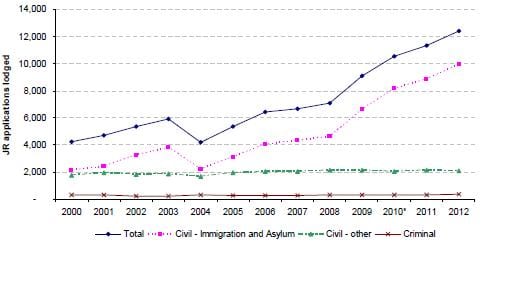The results of this year’s second Who Runs Britain? poll are as follows:
Table 1: Voting Intention – if there were a general election tomorrow which party would you vote for?
|
Party
|
Number
|
%
|
|
Conservative
|
16
|
32
|
|
Labour
|
18
|
36
|
|
Liberal Democrat
|
2
|
4
|
|
Green Party
|
9
|
18
|
|
UK Independence Party
|
4
|
8
|
|
Some other party
|
1
|
2
|
|
Don’t Know
|
2
|
4
|
|
I would not vote
|
3
|
5
|
|
Total
|
55
|
–
|
The other party was The Libertarian Party.
The figures were calculated as follows.
In calculating the percentage support for each party the responses Don’t know and I would not vote were excluded, ie the total used was 50 not 55.
In calculating the percentage of Don’t know and I would not vote responses, the figure for all responses was used, ie the total used was 55.
Table 2: Voting intention change 2013 tracker – if there were a general election tomorrow which party would you vote for?
|
Party
|
Oct
2013
|
Nov
2013
|
|
Conservative
|
35
|
32
|
|
Labour
|
41
|
36
|
|
Liberal Democrat
|
3
|
4
|
|
Green Party
|
10
|
18
|
|
UK Independence Party
|
5
|
8
|
|
Some other party
|
6
|
2
|
|
Don’t Know
|
4
|
4
|
|
I would not vote
|
4
|
5
|
|
Turnout
|
90
|
71
|
What does the poll tell us?
Please keep in mind the usual health warning about the small size of the sample, and the rather unrepresentative nature of a group of undergraduate politics students (see the previous poll for a more detailed health warning). The most obvious point is that Labour remains in the lead with 36% of the vote. However, Labour’s lead over the Conservatives has narrowed from 6 points to 4 points since our first poll in October. Support for the Liberal Democrats remains static with 2 votes in both polls. The slight percentage rise is due to the smaller turnout. The Green Party remains the third party in our poll, and they are the only party to have attracted more votes in this poll than in the October poll, despite a decline in turnout.
Since I started running these polls in 2009 a diverse range of parties have featured in the ‘other party’ box, and this poll was no exception. This is the first showing in the Who Runs Britain? polls for the Libertarian Party. The UK Libertarian Party was formed in 2008 and advocates classical liberal economic policies based on minimal state intervention in the economy, low taxes and the deregulation of business, coupled with socially liberal policies based around support for civil liberties such as freedom of speech, and the decentralisation of services such as health and education. The party has had very little electoral impact, although they did gain their first council seat in 2009 when a Liberal Democrat councillor in Stoke on Trent defected to the Libertarian Party.
The National Picture
If we compare the poll with recent public opinion polls we see that, as with the previous poll, this poll is remarkably similar to national polls taken at the same time. There were two national polls which completed their survey on the same day as our poll. Both had Labour 6 points ahead of the Conservatives, a wider margin than in our poll, but the level of support for the two main parties is broadly the same across all three polls. The Liberal Democrats have consistently polled higher in national polls than in any Who Runs Britain? polls since November 2010 which may or may not be a source of comfort for Nick Clegg. Support for UKIP is also lower in our poll, and for the Green Party considerably higher.
Table 3: Comparison with YouGov/Sunday Times poll of 10-11 October 2013
| Party |
Who Runs Britain? poll
15/11/13 |
YouGov/Sunday Times Poll
15/11/13 |
ComRes/IoS 15/11/13 |
| Conservative |
32
|
33
|
29
|
| Labour |
36
|
39
|
35
|
| Liberal Democrat |
4
|
10
|
10
|
| UKIP |
8
|
12
|
17
|
(source: UK Polling Report )
Previous cohorts of Who Runs Britain? students
As mentioned in the previous poll I began polling first year students on this module in 2009. I poll each cohort at the beginning of their degree, and then on four further occasions throughout the year. The chart below shows the Who Runs Britain? tracker poll. As mentioned previously the gap between support for Labour and the Conservatives in this year’s cohort is considerably narrower than last year, although Labour remain in the lead. Indeed, this is a narrower gap than at any point since the first poll of the 2011-2012 cohort in October 2011, although in that case the Conservatives were ahead. It is also interesting to note that, in all cohorts except the 2011-2012 cohort, the gap between the two main parties has narrowed between the first and second poll each year. This may suggest that students begin to question their voting preferences following their arrival at University. However, what is particularly interesting is that across several cohorts the Labour vote seems to suffer most between the first and second polls. In four out of the five cohorts 2010-11, 11-12, 12-13 and this year there has been a decline in the Labour vote between the first and second poll, while the Conservative vote has declined twice in 2009-10 and this year, increased twice, in 2010-11 and 2011-12, and was unchanged in 2012-2013. One possible explanation for this is that turnout always declines between the first and second poll, and, as I have observed in the past, a decline in turnout seems to impact more on the Labour vote. The admittedly controversial hypothesis that one might draw from this is that Conservative voting students are better attenders.

Party Leaders’ Approval Ratings
In this poll I also took the opportunity to poll you on how well you thought the leaders of each of the three main parties were doing. I used a standard approval rating question allowing you to rate their performance as fairly/very well or fairly/very badly. The results of this poll were particularly interesting. Despite the fact that Labour are clearly ahead of the Conservatives in terms of voting intention, the majority of those polled (59%) thought that David Cameron is doing fairly or very well, compared to only 24% who felt that Ed Miliband is doing a good job. Indeed very large majorities thought that Miliband (72%) and Clegg (81%) are doing badly. We can calculate a net approval rating by looking at the difference between those who think the leaders are doing well or badly. This shows that Cameron is the only one of the three leaders with a positive net approval rating (+19), ie with more people thinking he is doing well than badly. In contrast Miliband has a net approval rating of -48 and Clegg’s is a huge -69.
Table 4: How well do you think…. is doing as party leader/Prime Minister? (percentage valid responses).
|
|
Cameron
|
Miliband
|
Clegg
|
|
Very well
|
6
|
2
|
6
|
|
Fairly well
|
53
|
22
|
6
|
|
Total well
|
59
|
24
|
12
|
|
Fairly badly
|
22
|
46
|
31
|
|
Very badly
|
18
|
26
|
49
|
|
Total badly
|
40
|
72
|
81<%
|
 Following from my previous post, The Independent ran this story on its front page yesterday. Quoting analysis by the House of Commons Library it states that the Government’s tax changes and benefits cuts have disproportionately affected women, with women losing more through cuts to benefits, while men have disproportionately benefitted from tax cuts for higher earners.
Following from my previous post, The Independent ran this story on its front page yesterday. Quoting analysis by the House of Commons Library it states that the Government’s tax changes and benefits cuts have disproportionately affected women, with women losing more through cuts to benefits, while men have disproportionately benefitted from tax cuts for higher earners.


